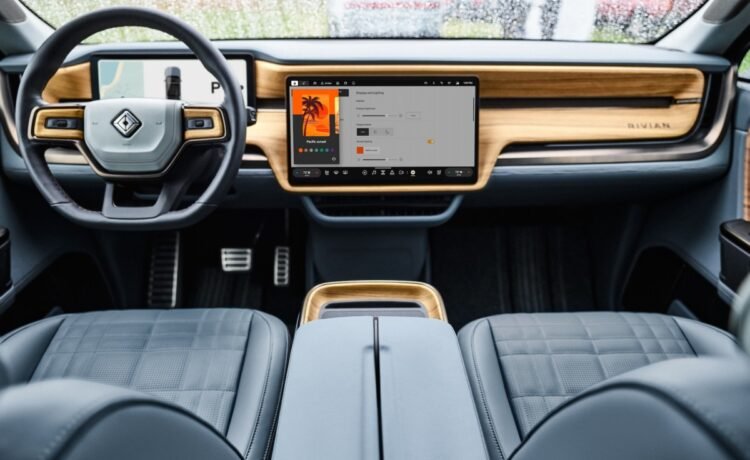Volkswagen Group said Tuesday it will invest $1 billion into EV startup Rivian as part of a broad software development deal that could expand to as much as $5 billion.
It’s a boon for Rivian, which has a tenuous path ahead as it pushes to develop its mass-market R2 SUV. The startup’s shares shot up more than 36% in after-hours trading. But it also gives Volkswagen another option for advancing its own software chops — something it has struggled mightily with during this mass transition to electric vehicles.
Under the deal, Volkswagen will use Rivian’s existing electrical architecture and software platform. All Volkswagen Group brands are included in this deal, which could bring Rivian DNA into storied brands like Porsche and Audi and even the conglomerate’s own EV upstart, Scout Motors.
The two companies are also creating a joint venture to develop and grow the technology. It will be a 50-50 partnership with co-CEOs, who will report into both Rivian and Volkswagen Group.
It’s possible that the joint venture will sell its tec other companies down the road, too. “But we have a lot to do in the short term,” Rivian founder and CEO RJ Scaringe said on a conference call. “We have a lot of products to work on, and so we are absolutely eyes-on-the-prize focused on the products within Rivian’s portfolio, within Volkswagen Group’s portfolio, and I’d say [we] couldn’t be more excited about what’s to come.”
Initially, Volkswagen will invest $1 billion into Rivian via an unsecured convertible note that will convert into Rivian’s common stock once certain regulatory approvals are received. The German auto giant will buy another $1 billion of Rivian’s common stock in each of 2025 and 2026. The remaining $2 billion will go to the joint venture, split between an initial investment an a loan in 2026.
Scaringe wouldn’t say exactly when the two companies began hashing out the idea of collaborating. But he said the conversation started when he met with Volkswagen Group CEO Oliver Blume at Porsche’s experience center.
“I grew up a massive Porsche enthusiast. I restored classic 356s, and I’ve owned all sorts of interesting products from the Porsche/Volkswagen family, so there was immediate realization that we have some shared vehicle interests,” he said. “But quickly that led to a serious conversation to say, how, how can we look at working together?”
Blume echoed that sentiment on the call. “From the first moment on, there was a very good feeling between us, the same mindset, same interests. And our business is a people business, and when you understand each other, then you will be successful,” he said, adding that Rivian is “very agile with experience on modern software.”
The news comes just weeks after Rivian started producing the next-generation of its R1T pickup truck and R1S SUV, an upgrade that reworking the guts of its vehicles, changing everything from the battery pack and suspension system to the electrical architecture, interior seats and sensor stack. Rivian’s new electrical architecture and compute platform reduced the number of electronic control units (ECUs) used to control the vehicle from 17 different ECUs in its first generation to seven. This new zonal architecture allows Rivian to cut more than 1.6 miles of wiring from each vehicle — a 44-pound weight savings — and to build its vehicles faster.
That new electrical architecture — or what Scaringe describes as new vehicle topography — is seen internally as a key innovation at Rivian. That new zonal architecture supports the Rivian’s software stack, which was also developed and deployed in house. That software stack includes everything related to real-time operating systems (RTOS) that manage the car, such as thermal dynamics, ADAS and safety systems, as well as another layer related to the infotainment system.
This story is developing…















